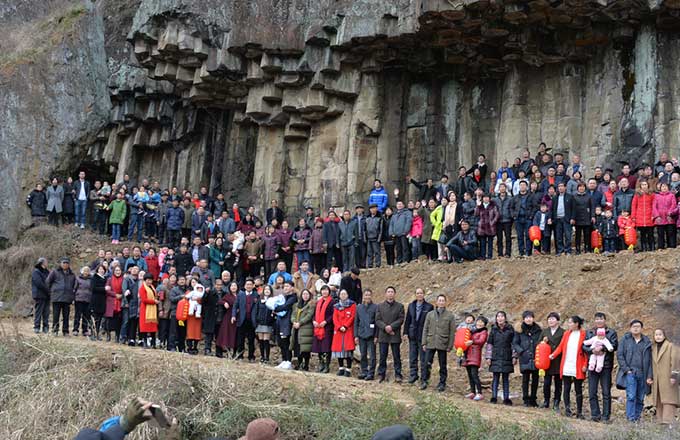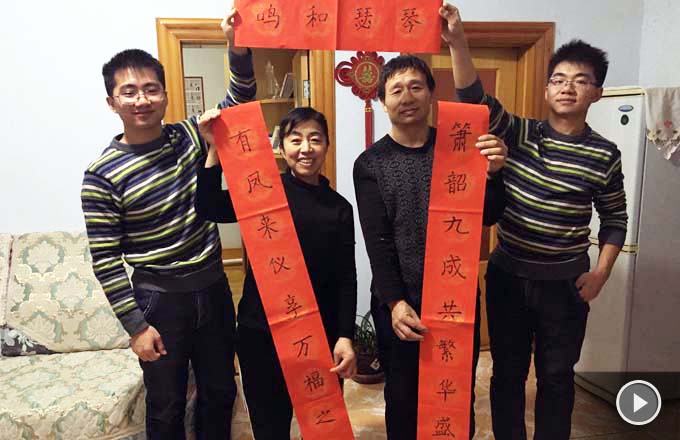4G market set to ignite hot competition
Foreign companies vie for a slice of the potentially lucrative action
Foreign telecom companies are keen to join China's fourth generation (4G) mobile network deployment with the country looking likely to issue the relevant licenses as early as this year.
Minister of Industry and Information Technology Miao Wei said the country is expected to award 4G licenses to domestic telecom operators by the end of 2013.
Miao's words have helped fuel the enthusiasm of telecom industry players, both from China and abroad, to participate in the hunt for a sizable share in the world's largest 4G market where there are more than 10 billion cellphone subscribers.
Competition
 |
|
Both Chinese and foreign fourth generation mobile network vendors are excited about the news the Chinese government will grant the 4G mobile network licenses to operators this year. They see huge business opportunities because the country's 4G market has more than 10 billion cellphone subscribers. Provided to China Daily |
Global telecom equipment giants, including Ericsson AB, Nokia Siemens Networks and Alcatel-Lucent SA, as well as the world's leading chipset and device manufacturers such as US-based Qualcomm Inc and South Korea company Samsung Electronics Co, are preparing to do battle in China over the 4G market.
It is easy to see how attractive the Chinese 4G market is after China Mobile Ltd, the nation's largest telecom operator, announced its capital spending would jump 49 percent year-on-year to 190.2 billion yuan ($30.5 blion) in 2013. More than half of the company's spending on networks - 42 billion yuan - will go on 4G projects this year.
High-level executives from two smaller wireless carriers - China Unicom (Hong Kong) Ltd and China Telecom Corp - also revealed they are conducting 4G trials.
The world's largest Long-Term Evolution (LTE) 4G vendor Ericsson expressed an ambition to achieve a better performance in China this year.
"We are not satisfied with the results Ericsson achieved in China Mobile's first-round 4G bidding last year," said Mats H. Olsson, senior vice-president of Ericsson Asia-Pacific, during the 2013 Mobile World Congress held in Spain in February. "In the past Ericsson paid a lot of attention to countries including the United States, Japan and South Korea and mainly focused on the deployment of FDD LTE networks. Now we have turned our sights on China and TD-LTE technology," Olsson said.
He expects China will become the world's biggest 4G market. Therefore Ericsson will ensure it is fully prepared and strive to lift the 4G market share in the country, he said.
The Time-Division Long-Term Evolution (TD-LTE) technology and the Frequency-Division Duplex Long-Term Evolution (FDD LTE) technology are two variants of the LTE 4G standard.
The TD-LTE technology is a Chinese homegrown 4G standard and is actively promoted by China Mobile. However, unlike the wide-range adoption of FDD LTE technology, the deployment of TD-LTE commercial networks is still limited. Markus Borchert, president of Nokia Siemens Networks China, said 2013 is a very important year as eyes are turning to China and China Mobile's 4G activities.
Nokia Siemens Networks, based in Espoo, Finland, is the No 2 LTE player globally and No 1 LTE player in Asia by sales. "We are very happy to see the strong leadership role China Mobile is taking to drive the TD-LTE eco-system. I think that is very good for the industry," Borchert told China Daily.
China Mobile is conducting large-scale 4G TD-LTE trials in 15 cities including Beijing, Shanghai and Guangzhou. The Ministry of Industry and Information Technology predicts an investment of 500 billion yuan in trial network construction and more than 1 trillion yuan after commercial use begins.
In addition to 4G benefits to telecom equipment makers, Bryan Wang, vice-president and principal analyst at Forrester Research, said the potential commercial rollout of the 4G LTE network has also lured networking vendors such as Juniper Networks and Cisco Systems Inc.
"China's economic slowdown last year had a negative effect on international IT companies but 4G construction is rising and has been a highlight," Wang said.
- China cultural industry expands faster in 2016
- Foreign daughter-in-law enjoys Spring Festival with her new family in South China
- Li sends congratulations on China-Australia Tourism Year
- 4 Chinese tourists rescued in Malaysia's boat accident head home
- Art test-takers wait in anticipation for 2017 exam

























